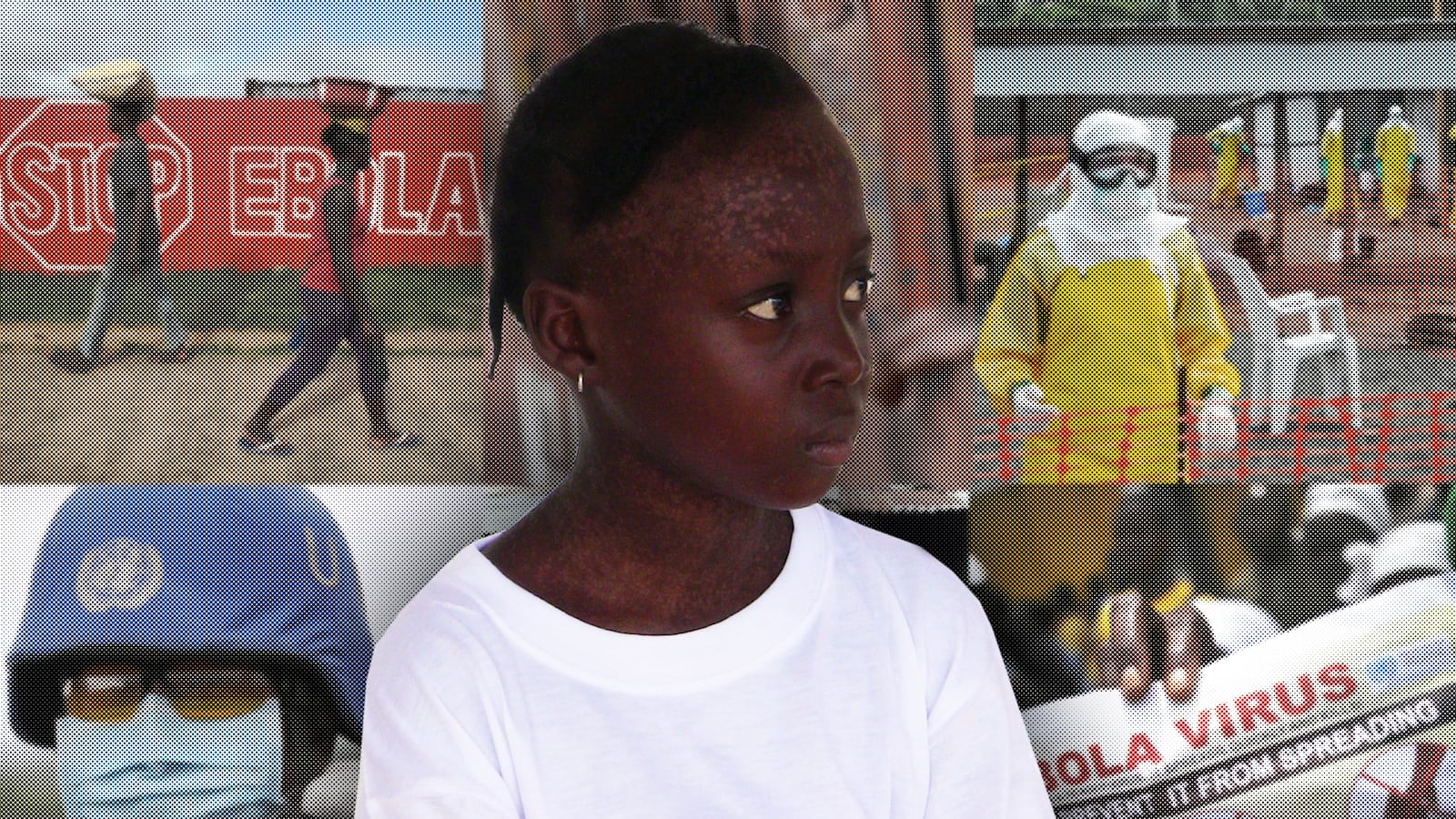MONROVIA, Liberia—Miatta Urey, 6, walked out of the Island Clinic Ebola Treatment Unit on Wednesday, smiles beaming on her face in the afternoon sun. Her eyes lit up as she saw her uncle and aunt, there to welcome her back into the real world.
Miatta’s mother, Dedee Sirleaf, could not be there to receive her daughter. Over the past week, all she had been doing was crying and pestering doctors to look after Miatta, whom she had left behind in the ETU. Her brother Mulbah Sirleaf said Dedee could not be there to greet her child because her “heart was hurting.”

Miatta is among Dedee’s four children who contracted Ebola after their father died from the deadly virus. Dedee also lost her 4-month-old baby girl to Ebola, and she could not handle losing another child.
“I’m so happy my daughter is out today; I never thought this day would come,” she said joyfully over a cracked mobile phone line after her daughter arrived home. Dedee was in the midst of a prayer of celebration when the call came. “I lost my baby and I could not bear the thought of losing Miatta, who was my only girl left.”
Watching her husband and baby die of Ebola was the worst tragedy she has ever witnessed in her life, Dedee said. She said watching her children’s condition deteriorate in the ETU almost left her in shock. She was heartsick but worried about the survival of her three remaining children, Prince, 12, Francis, 13, and Miatta, 6.
“Miatta and her brother Francis were very sick, for three days they could not eat or drink anything. I was worried,” she said. “I begged the doctors to save my children [as] I watched them grow weaker and weaker every day.”
Little Miatta’s family tragedy began in August, when her father became sick. Dedee says there was no response from the Ebola call center when she called them. With no one to come to the family’s rescue, they decided to take things into their own hands.
“My husband was sick, [so] we called the ambulance, but they did not come and for three days my husband, my children, and I were all sleeping in the same room,” said Dedee.
“He got serious and we put plastic on our hands and put him in the wheelbarrow and took him to JFK [hospital] but before reaching, he died. After my husband died, my four children and myself got sick and they took us to Island Clinic, and my baby died,” she said.
Mulbah Sirleaf, Miatta’s uncle, watched the family go through their tragedy and recalled what happened in August.
“Miatta’s father got sick. He was showing signs of Ebola. He was vomiting and toileting,” he said. “We took him to several clinics and we ended at the John F. Kennedy Memorial Hospital. The same night he was taken to JFK was the same night he passed out. After a week, Miatta’s mother and brother started to show signs and symptoms, so the community decided that they come at the ETU so they could be observed.”
On Wednesday, exactly one month after she was brought to the World Health Organization-run Island Clinic ETU, Miatta walked out with a clean bill of health.
She was wearing a white T-shirt that fit her like a dress—health workers could not find her size in the pile of clothes given out to other survivors. Dr. Quiah Augustus Garlet, the lead psychosocial counselor at the Island Clinic ETU, handed Miatta the T-shirt and instructed her to go into the ETU and put it on. He asked her and other survivors who were being discharged to leave everything else behind. They were also given slippers to put on.
As lead psychosocial counselor, Garlet says he feels happy that Miatta can walk out alive after all that she’s been through. He says the 6-year-old has a marvelous resilience.
“Miatta’s case is so special because her survival was like a miracle,” he said. “She came into the isolation center with a [temperature] of 40 degrees [104 Fahrenheit], and that was too high for a 6-year-old.”
“There was a point in the ETU when we thought she was going to die. One night she was gasping for breath and we thought we had lost her,” he continued. “Then suddenly, she developed strength and started asking for juice. She was revived.”
Miatta is among 11 patients released Wednesday from the ETU.
Amos K. Sonyah, another psychosocial counselor, said all the cases were confirmed Ebola cases, but after treatment and repeated laboratory tests they tested negative for the disease. “Some of them have been here for over a month and others have been here two to three weeks,” he explained.
Miatta is now with her mother and what’s left of her family. Though she has visible physical scars across her face and neck from the disease—due to rashes that she developed while in isolation—Miatta’s mother said the scar the family bears from its loss of members will always be there.





